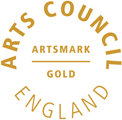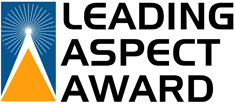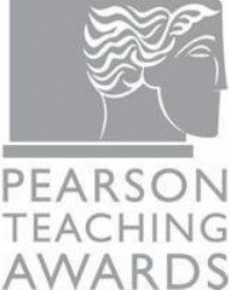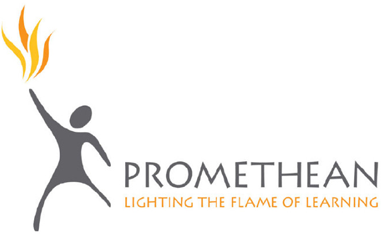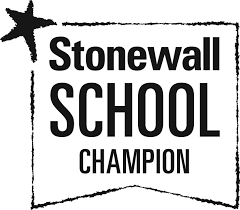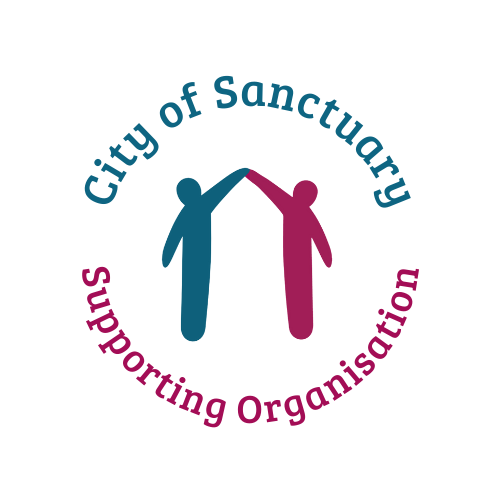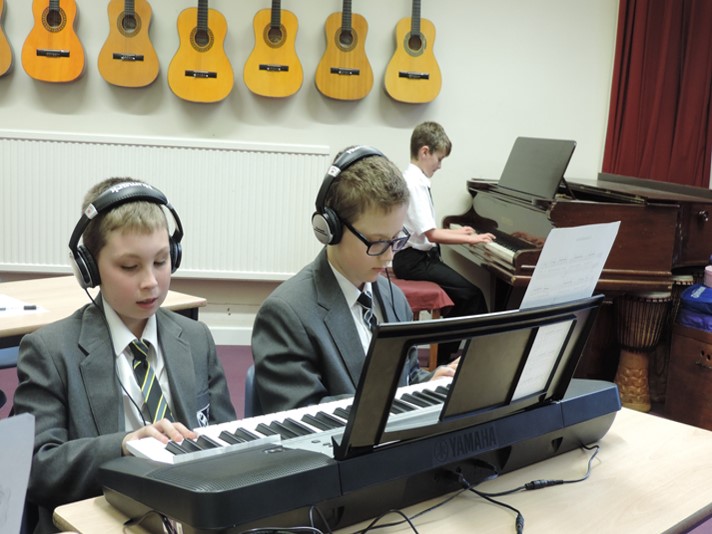
Music:
Subject Information Overview
Below is a visual overview of the content available on this page. Click the appropriate title to view the relevant section
Curriculum
Area Staff Curriculum
InformationCurriculum
OverviewExam information for GCSE
qualifications in this Subject AreaKnowledge
Organisers
Curriculum Area Staff
|
Lorna Boole
Orlaith O'Malley
|
|
Should you require more information about this subject area please contact:
Name : Mrs L Farrell
Position : Director of Peforming Arts
Email : lh@selbyhigh.co.uk
Curriculum Information
The aim of the music curriculum at Selby High is to enable every student to develop an understanding and an appreciation for music across a range of styles and genres and to develop the core skills and knowledge needed to progress further if they choose. Using vocal and instrumental skills, students will study areas such as World Music, Minimalism, Musical Elements, Piano, Ukulele, Jazz/Blues and Film music. By actively participating in performing, singing, composing, studying, listening and analysing, our students will become open-minded and well-rounded musicians.
The music curriculum at Selby high aims to:
- Allow students to develop skills and confidence to play and perform music
- Bring students into closer contact with music by performing solo and in small ensembles
- Develop essential skills on instruments such as the piano and the guitar.
- Listen and appraise music – to support themselves and others in developing their musical talents and confidence with performing
- Compose, create and improvise – to demonstrate to students how to develop their listening, composing and performing skills
- Learn about notation and the musical elements - understanding the language of music
- Encourage every child to be a music reader- Instil a desire to ‘reach for the stars’ and achieve the highest possible standards
- Offer a variety of opportunities for students to perform in school and in the local community, increasing the opportunity for students to be an active citizen in their local community through music.
Throughout Key Stage 3 students will learn about the essential elements of music by engaging in a wide range of musical activities. Students will sing regularly in lessons, building vocal confidence as they move from Year 7 to 9. Students will develop practical instrumental skills on keyboard and Ukulele and they will be showcasing their skills in various performances throughout the year further building their confidence. As the course progresses in Y8, students will delve deeper into the elements and show a higher level of control and understanding when discussing, analysing and performing music. In Y9, students will work on a curriculum which builds on their learning from year 7 and 8 but also prepares them for their further studies in music should they opt to continue. The Btec curriculum focuses on skills development, understanding musical styles and responding to a music brief. Although unique to the Btec music course, these skills are universal and apply to all levels of musicianship.
CURRICULUM OVERVIEW
Below is a summary overview of the topics and their content that will be studied in each term by each year group. For more information about each topic, get your child to visit learning journeys and resources on the school online learning platform - Ready Steady Learn.
| Year Group |
Term 1 |
Term 2 |
Term 3 |
| 7 |
A1: Pulse, rhythm and tempo
Students learning about tempo, rhythm and metre through a range of practical and listening tasks, including:
- Understand metre/time signatures
- Learn to read and identify basic rhythmic notation
- Learn the Italian terms for Tempo
- Understand, perform and identify syncopated rhythms
A2: Pitch, melody, texture
Students build practical skills on the piano; activities include:
Scales, broken chords
Reading notation and learning repertoire
Identifying different musical textures.
|
Sp1: Harmony and tonality
Students develop practical skills on the Ukulele and keyboard including:
- Constructing chords
- Understand and identify major and minor chords
- Know the primary chords I, IV and V
- Reading from a chord chart
- Reading tablature
Sp2: Style and structure
Students learn about the four instrument families, about the conductor and about the makeup of the orchestra; activities include:
- Learning about a range of genres including pop, Western classical, blues, and musical theatre.
- Understand and perform ground bass
- Compose using song structure (verse/chorus)
- Identify and perform hooks and riffs
- Identify and perform using the 12 bar blues structure
|
Sum 1: Dynamics and instrumentation
Students learn about instruments of the orchestra; activities include:
- Know the instrument families
Learn about the layout and structure of the symphony orchestra
- Develop an understanding of musical instruments and how they are played
- Learn the Italian dynamic terms
- Learn about instruments of different cultures
Sum 2: Ensemble performance skills - World music
Students learn about music from various cultures around the world; activities include:
- Africa; students learn to perform a call & response vocally and rhythmically.
- Indonesia; students learn about Gamelan music and the culture that surrounds it.
- Brazil; students learn about Samba music and the culture of Brazil
|
| Assessment details |
A1: Listening & Performing Assessment
- Students listen to excerpts and identify key elements within the excerpt.
A2: Solo keyboard performance assessment
- Students perform a piece of keyboard music.
|
Sp1: Ensemble Performance Assessment
- Students perform a choice of song with an ensemble and/or as a solo.
Sp2: Performance, composition & Written Assessment
- Students perform a piece of blues music and compose a piece using the 12 bar blues
- Students take a written assessment showing their knowledge of the orchestra.
|
Sum1: Written Assessment
- Students take a written assessment showing the key knowledge they have learned
Sum2: Comp/Perf Assessment
- Students are assessed on a composition that they create and perform.
|
| 8 |
A1: Pulse, rhythm and tempo
Students recap the ten essential musical elements in greater depth:
- Dynamics
- Rhythm
- Structure
- Style
- Melody
- Instrumentation
- Tempo
- Texture
- Tonality
- Harmony
- Understanding Italian tempo terms-presto, vivace, largo, grave
- Note values (Dotted notes, tied notes, semiquavers, beat counting and BPM)
- Cross rhythms, polyrhythms and time signatures
Syncopation
- Rests
- Triplets
- Walking bassline from 12 Bar Blues
A2: Pitch, melody and texture
Major and minor scale
- C, D and E major scales
- Semitone, tone
- Scalic melody on the keyboard
- Recognise and perform melismatic and syllabic movement
- Accidentals, chromatic scales, atonal music
- How to use basic notation software
- Pentatonic scale and pop melodies
- Baseline and pentatonic riffs
|
Sp1: Harmony and tonality
Students continue to build upon the knowledge gained during Term 1 and Year 7:
- Primary and Secondary Chords
- Major and Minor triads
- Atonality
- Tonalities
- Broken Chords and Arpeggios
- Modulation
- Scale degree
- Intervals
- 7th Chords and Extended Chords
- To utilise basic notation software and music editing software
Sp2: Style and structure
Learning about the style and structure of different music genres
Understand and identify the following key features of film music:
- Diagetic/non diagetic, foley, leitmotifs and film scores
- Binary, ternary and rondo
- Foley skills-layering to create texture and creative use of everyday objects for SFX
- Developing the use of technology to create music (Bandlab)
|
Sum1: Dynamics and instrumentation
Students learn about the key term dynamics and how it can be applied across a variety of pieces focusing on instruments of the orchestra:
- Understand and identify orchestral instruments and the instrument families
- Learn about the layout and structure of the symphony orchestra
- Develop an understanding of musical instruments and how they are played
- Learn the Italian dynamic terms and apply them practically
- Understand the range of an instrument/voice and how to use this knowledge practically
Sum2: Ensemble performance
To understand the skills required for an ensemble performance:
- Understand the musical element
- ‘Dynamics’ and be able to apply this in a performance.
- Understand the musical elements
- ‘Rhythm’ & ‘Pulse’ and be able to apply these in a performance.
- Respond to others in an ensemble performance
|
| Assessment details |
A1: Listening & Performing Assessment
- Students listen to excerpts and identify key elements within the excerpt.
- Students perform music showing awareness of the elements (Mr Brightside/Three Little Birds/Jump/Here Comes The Sun
- End of topic test assessing knowledge and skills learned during this half term
A2: Composition & Performance Assessment
- Students perform a pentatonic bassline riff
- End of topic test assessing the knowledge and skills learned during this half term
|
Sp1: Performing & Composing Assessment
- Students performance of the chords from Autumn Leaves by Chet Baker
- Students complete a written assessment showing their knowledge of Harmony and tonality
Sp2: Performance & Composition Assessment
- Students create and perform a range of Foley FX
- Sequence a basic ABA piece using Bandlab
- Create a chord progression using primary and secondary chords
- Create their own sounds to a moving image using knowledge of Foley FX
Sp2: Listening & Performing Assessment
- Identify musical structures aurally
- Correctly identify various musical styles/genres from their features
- Identify features of film music accurately
|
Sum1: Performance & Composition Assessment
- Accurately perform a piece of orchestral music exploring various keyboard sounds
- Play a variety of instruments to understand how they are played
- Perform using a variety of dynamics
- Compose a short musical idea using a variety of dynamics
- Develop understanding of range, and how to compose for various instruments
- Develop understanding of range, and how to compose for various instruments
- Performance task of either In The Hall of The Mountain King or Hedwig’s Theme
- End of topic test assessing the knowledge and skills learned during this half term
Sum2: Listening & Performing Assessment
- Accurately identify various musical instruments through listening activities
- Recognise various dynamics within a piece of music
- Accurate describe the timbre of an instrument and why it is used for that piece
- Perform a song as part of an ensemble with good attention to accuracy of pitch, timing and dynamics
|
| 9 |
A1: Musical forms and devices. Students will explore musical time periods and their key features including Classical, Baroque and Romantic.
- Explore musical structures (binary, ternary and rondo)
- Ornamentation as a melodic device
- Other musical devices such as repetition, imitation, ostinato, drone, arpeggio/broken chord
A2: Music for ensemble.
To understand the key features of Blues, Jazz and Musical theatre
- Ensemble
- Texture
- Sonority
- Instrumentation in musical styles
- Melody and accompaniment in the genres studied
- Unison texture
- Chordal texture
- Monophonic, homophonic and polyphonic textures
|
Sp1: Film Music.
Students will develop their knowledge of music for film and its relevance.
- Leitmotif
- Knowing the difference between diegetic and non diegetic music
- Common instrumentation found in film scores
- Identify different film scores
Explore contrast, timbre and dynamics
- Staccato
- Legatto
- Use of layering in film music
Sp2: Popular Music.
Looking specifically at Pop, Rock and Fusion and Electronic music techniques.
- Song structure
- Improvisation
- Digital skills and production techniques
- Chord progressions
|
Sum1: Composition 1, composing a 32 bar song.
- Composition
- 32 bar song form
- Recognise structures in pop song writing
- Primary and secondary chords
- Melisma and syllabic melody
- Tonality, major and minor keys, tones and semitones
- Chord sequences
- Pentatonic scale
Sum 2: Composition 2, analysing film scores
- Leitmotifs
- Spotting hit points
- Harmony
- Knowing the difference between diegetic and non diegetic music
- Common instrumentation found in film scores
- Identify different film scores
- Explore contrast, timbre and dynamics
- Staccato
- Legatto
- Use of layering in film music
|
| Assessment details |
A1: Listening & Performing Assessment
- Accurately identify various musical time period through listening skills activities
- Recognise various instruments within a piece of music
- Recognise various melodic devices within a piece of music
- Accurately perform a Baroque melody with a focus on melodic devices such as Trills & Mordents.
- Accurately perform a Classical melody with a focus on melodic devices such as Grace Notes
A1: Comp/Perf Assessment
- Compose a short Romantic style melody
A2: Listening & Performing Assessment
- Accurately perform a piece of ensemble music in either the musical theatre tradition or the jazz and blues tradition
- Accurately identify musical features in Jazz, Blues and Musical Theatre
|
Sp1: Listening & Performing Assessment
- Listening to film scores and identifying key features
Composition Assessment
- Create a minimalistic film composition
Sp2: Composition Assessment
|
Sum1: Listening & Performing Assessment
- Identify song structure and sections of a pop song
- Correctly identify instruments
- Accurately describe tonality
- Singing in a group with accuracy, confidence and good timings
- Perform rhythms accurately and in time to a pulse
- Perform chords & melody to a pulse with accuracy and good transitions
Sum 1: Comp/Per Assessment
- Demonstrate ability to recreate a song in 32 bar form/AABA using simple chords and sequences
- Demonstrate ability to compose simple melodies using a pentatonic scale
- Understand lyrical structure and how to compose simple lyrical patterns over a chord sequence
Sum2: Comp/Per Assessment
- Create an underscore for a film trailer
|
| 10 |
A1: Exploring Music Products & Styles
A2: Exploring Music Products & Styles
|
Sp1: Exploring Music Products & Styles
Sp2: Music Skills Development
|
Su1: Music Skills Development
Su2: Music Skills Development
|
| Assessment details |
|
Dec/Jan:
- Learners will compile a portfolio of evidence that demonstrates their understanding of four different styles of music using musical examples related to a theme.
- Learners will create three 30-60 second examples of ideas for music products related to a theme, using a range of realisation techniques.
|
May/June
- Learners will plan and create 2 musical outcomes in different musical areas in response to a theme that will develop professional and musical skills.
|
| 11 |
A1: Responding to a Music Brief
A2: Responding to a Music Brief
|
Sp1: Responding to a music brief.
Sp1: Responding to a music brief.
|
External Assessment / Synoptic
|
| Assessment details |
|
|
May/June
Learners will respond to the brief either as a music creator and producer, or as a music creator and performers. The brief will consist of a scenario that will include a list of ten pieces of music from a range of styles that the learners have covered in component 1. They will be required to use one of these in their final product.
|
KNOWLEDGE ORGANISERS
A Knowledge Rich Curriculum at Selby High School
Research around memory suggests that if knowledge is studied once and not revisited or revised, it is not stored in the long-term memory. This means that after one lesson, or revising for one test, the knowledge will not be retained unless it is studied again. It won’t be recalled unless it is revisited frequently, which will embed it in the long term memory. In the long term this makes recall far easier. As part of home learning, students should be revising what they have been taught recently but also content they were taught previously. Therefore as part of our strategy to embed learning over time we have started to develop knowledge organisers across all year groups and curriculum areas. These will provide key content and knowledge allowing students to pre-learn and re-learn, a vital part of processing all the information required to be successful in the new style GCSE’s.
Instructions for using your knowledge organisers
KS3 = Years 7, 8 & 9
KS4 = Years 10 & 11
Below are the knowledge organisers for each topic in this subject. These knowledge organisers will become embedded in the Learning Journeys for each topic as they are created on Ready Steady Learn.
Exam information for GSCE qualifications in this subject area
Click each link below to view the full specification:
BTEC Tech Award in Music Practice
Component 1-Exploring Music Products and Styles (30%)
Component 2-Music Skills Development (30%)
Component 3-Responding to a Commercial Brief (40%)



